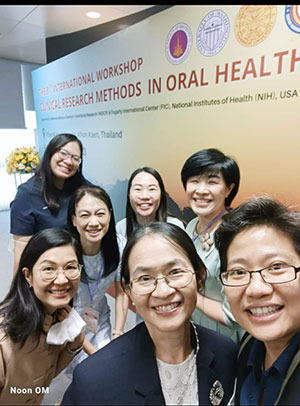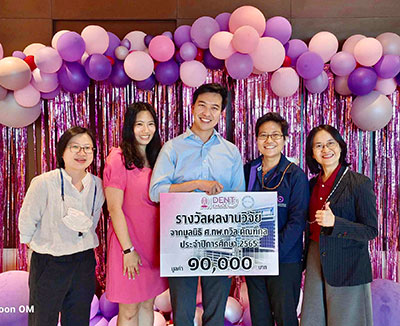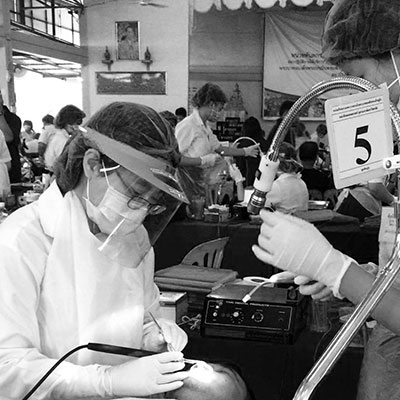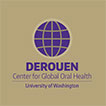Greetings from Bangkok, Thailand! My name is Oranart Matangkasombut, and Noon is my nickname. I am currently an Associate Professor in Microbiology, chairperson of the Center of Excellence on Oral Microbiology and Immunology at the Faculty of Dentistry, Chulalongkorn University, and Fellow of the Royal College of Dental Surgeons of Thailand in Dental Public Health.

I have always been fascinated by the invisible but vast world of microbes and how their constant interactions with humans affect our health. After graduating from Chulalongkorn University Dental School, I was awarded the Anandamahidol scholarship under Royal patronage of HM the King to pursue my Ph.D. in Biological Sciences in Dental Medicine at Harvard University. This was where I fell in love with molecular biological research working on cellular machineries that regulate gene expression using the budding yeast as a model system.
My postdoctoral research at the Whitehead Institute for Biomedical Research brought my two spheres of interests in molecular biology and oral health together. I was supported by the Dean’s Scholar Award from Harvard School of Dental Medicine to work on the genetic and epigenetic basis of antifungal resistance in Candida albicans, a common oral fungal species that can cause oral and systemic opportunistic infections. The increase in antifungal resistance is a major public health problem worldwide and is among my current research interests.

After returning to Thailand, I had the opportunity to join the 1st workshop on Clinical Research Methods in Oral Health organized by Prof. Tim DeRouen and colleagues. This was a critical steppingstone that allowed me to expand my research into clinical studies. The advances in DNA sequencing technologies have allowed us to study all the microbes in an environment without the need for cultivation and have opened the doors to novel discoveries related to the human microbiome. Since early childhood caries (ECC) is an important problem, especially in developing countries, we took advantage of this new technology to search for predictive indicators of dental caries in toddlers. The goal was to identify caries-predictive biomarkers in the salivary microbiome of caries-free toddlers so that we can provide effective targeted preventions of ECC before its onset. We collaborated with Prof. Waranuch Pitiphat’s team at Khon Kaen University and Prof. Ana Lucia Seminario at UW to conduct this study within a longitudinal cohort that followed over 500 one-year-old children for 2 years. Our work was the first to have identified 4 bacterial taxa and developed a model that could help to predict future caries in 1-year-old children. This work has been recognized by the 2022 young investigator award from IADR Pediatric Oral Health Research Group (POHRG) to Dr. Ratcha Raksakmanut, our PhD graduate and the first author of our article recently published in the JDR.

I continue to enjoy bringing together molecular microbiology and oral health in my research. Our group’s research interests span across disciplines, including oral microbiology, oral fungal infections, fungal-bacterial interactions in dental caries and endodontic infections, DNA repair and bacterial genotoxins, antimicrobial drug resistance and adjunctive agents, hyposalivation, and the impacts of oral microbiome on oral health. As a full-time faculty, I value the stimulating interactions with highly motivated students in both academic and research capacities. I have been fortunate to have had many wonderful mentors and collaborators. Now I am happy that I can also join the team to share my experience as a mentor in the new D43 training grant’s international workshops on Clinical Research Methods in Oral Health.
